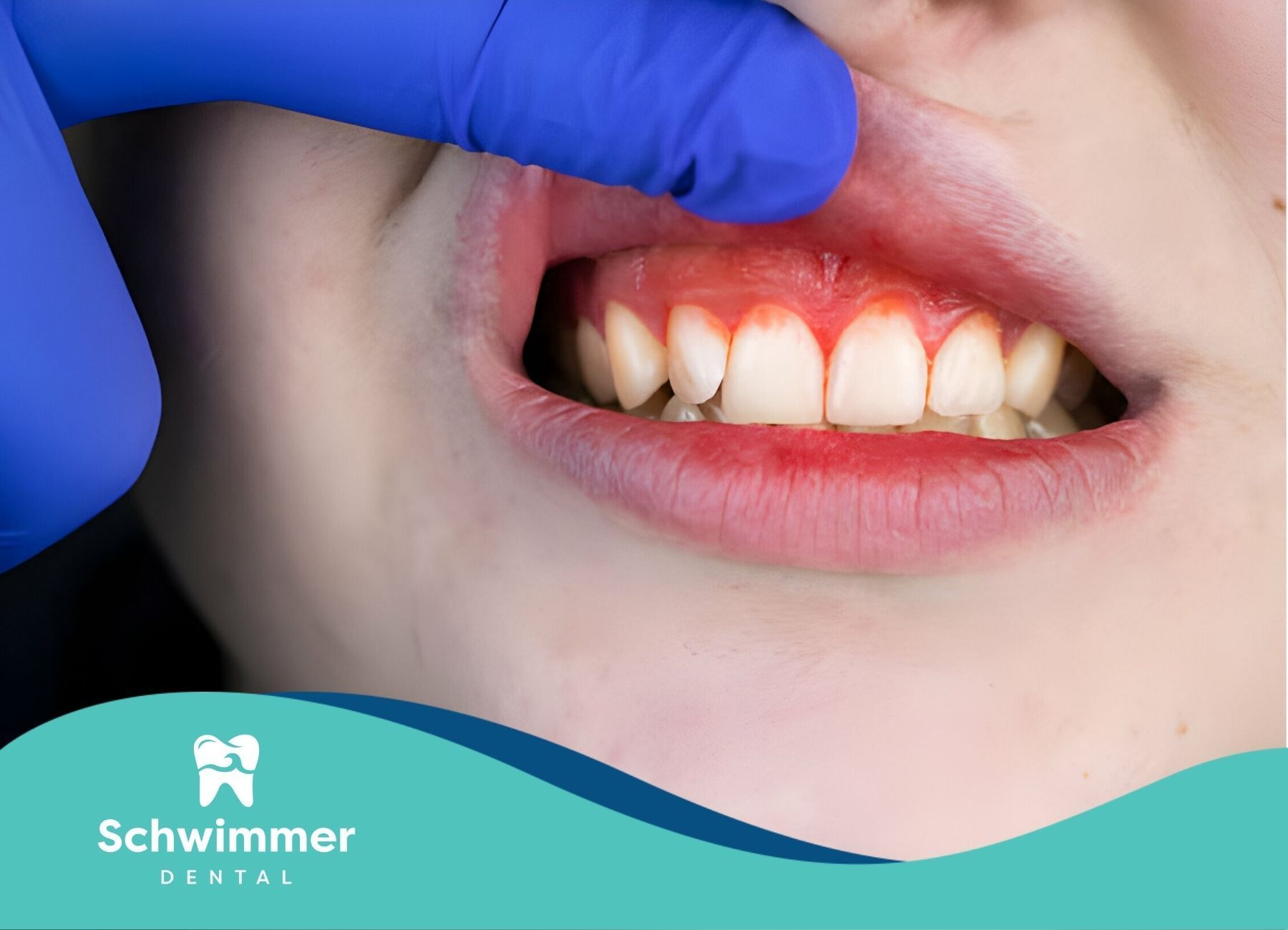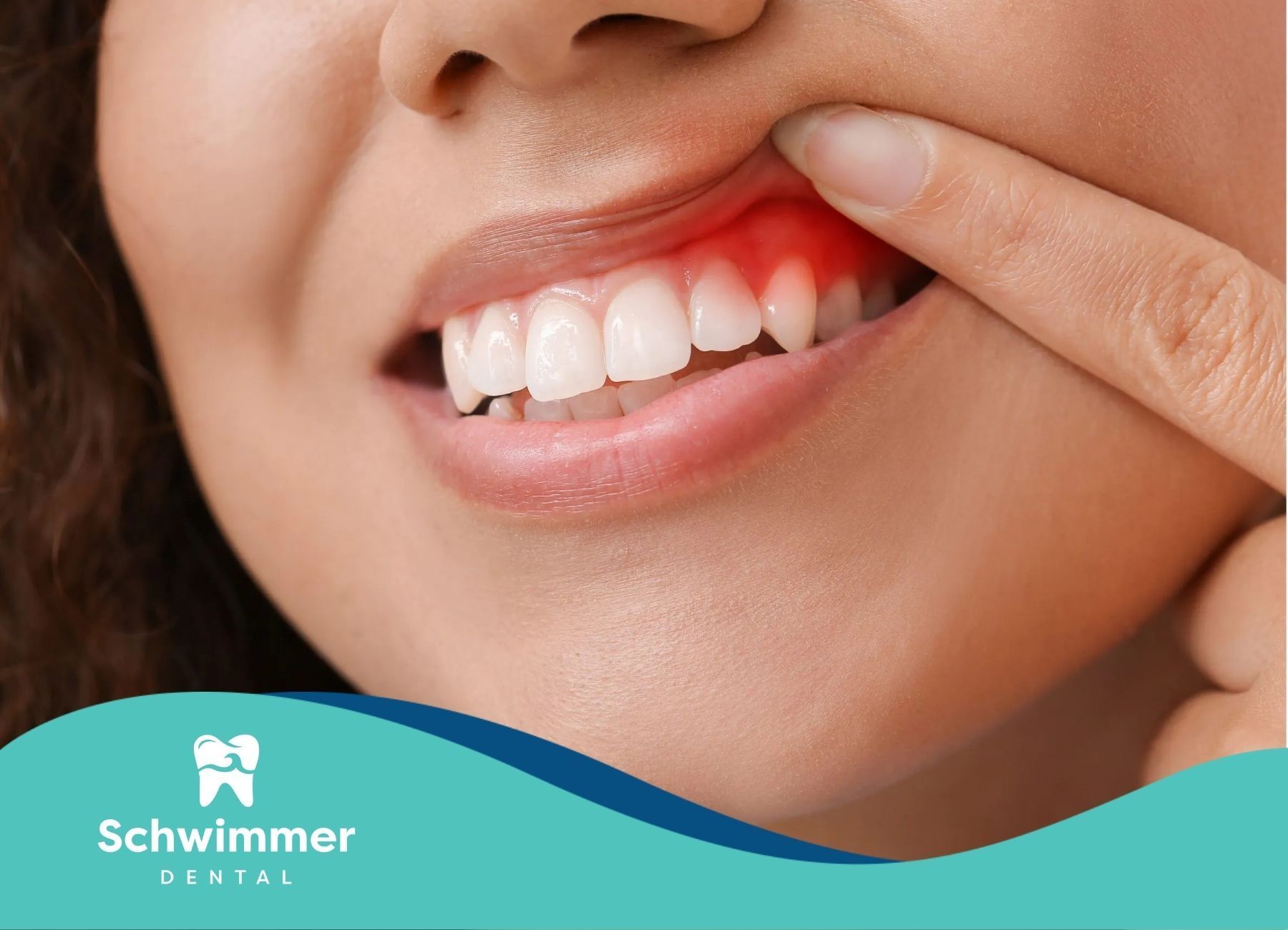Have an appointment? Complete the Intake Form
Best Oral Hygiene Practices for Healthy Teeth and Gums
Best Oral Hygiene Practices: Your Guide to Healthy Teeth and Gums
Maintaining optimal oral hygiene is essential not only for a bright, confident smile but also for your overall health. Good oral hygiene helps prevent dental problems such as cavities, gum disease, and bad breath, while contributing to your overall well-being. The habits you form today can have a lasting impact on your dental health, helping you avoid costly and painful dental treatments down the road.
In this blog post, we will guide you through the best oral hygiene practices that will keep your teeth and gums healthy and your smile shining. From brushing and flossing to dietary choices and regular checkups, we’ll cover everything you need to know to ensure your oral health is top-notch.
Brushing Your Teeth: The Foundation of Oral Hygiene
Brushing your teeth is the cornerstone of good oral hygiene. Proper brushing removes plaque and food particles from the surfaces of your teeth, reducing the risk of cavities and gum disease.
How to Brush Properly:
- Choose the Right Toothbrush: Use a toothbrush with soft bristles that fit comfortably in your mouth. A toothbrush that’s too hard can damage your gums and enamel.
- Use Fluoride Toothpaste: Fluoride helps strengthen tooth enamel and prevent cavities. Make sure your toothpaste contains fluoride.
- Brush Twice a Day: Brush your teeth for at least two minutes, once in the morning and once before bed. Don’t forget to brush your tongue as well, as bacteria can accumulate there.
- Brush Gently: Use gentle, circular motions rather than harsh scrubbing to avoid damaging your gums and enamel.
- Replace Your Toothbrush Regularly: Change your toothbrush or electric toothbrush head every three to four months, or sooner if the bristles are frayed.
Tip: To ensure you’re brushing for the recommended two minutes, use a timer or an electric toothbrush with a built-in timer.
Flossing: Don’t Skip This Step
Flossing is an essential part of any effective oral hygiene routine. While brushing removes plaque from the surfaces of your teeth, flossing helps clean between your teeth and along the gumline, where your toothbrush might not reach.
How to Floss Properly:
- Use the Right Amount of Floss: Break off about 18 inches of floss, winding the ends around your fingers and leaving a few inches of floss between them.
- Gently Slide the Floss Between Your Teeth: Avoid snapping the floss down between your teeth. Instead, gently guide it between your teeth, curving it around each tooth in a C-shape.
- Don’t Forget the Back of Your Last Teeth: Many people forget to floss the back of their last tooth, but this area is crucial for maintaining healthy gums and preventing cavities.
- Floss Once a Day: Flossing once a day is sufficient to remove plaque and food particles from between your teeth. It’s best to floss before brushing to ensure plaque is removed before it can harden into tartar.
Tip: If traditional floss is difficult to use, consider floss picks or a water flosser as alternatives.
Mouthwash: A Final Step for Freshness and Protection
While mouthwash shouldn’t replace brushing or flossing, it can be a helpful addition to your oral hygiene routine. Mouthwash helps to rinse away remaining debris, freshen your breath, and reduce bacteria in your mouth.
How to Use Mouthwash Effectively:
- Choose the Right Mouthwash: Opt for a mouthwash that is alcohol-free and contains fluoride for additional protection against cavities. If you’re concerned about gum health, look for an antiseptic mouthwash that can help reduce gum inflammation.
- Use as a Supplement: Mouthwash is an adjunct to brushing and flossing, not a substitute. After brushing and flossing, rinse your mouth with mouthwash for 30 seconds to 1 minute, swishing it around your mouth thoroughly.
- Don’t Swallow Mouthwash: Mouthwash contains ingredients that are meant to be spit out, so avoid swallowing it.
Tip: If you have dry mouth or bad breath, a specially formulated mouthwash can help address these concerns by promoting saliva flow and reducing odor-causing bacteria.
Diet and Nutrition: Fuel for Your Teeth
Your diet plays a significant role in your oral health. The foods and drinks you consume can either help protect your teeth or contribute to tooth decay and gum disease.
Foods to Promote Healthy Teeth:
- Calcium-Rich Foods: Calcium strengthens tooth enamel. Include dairy products like milk, cheese, and yogurt in your diet, as well as non-dairy alternatives like almonds, leafy greens, and tofu.
- Vitamin C: Vitamin C helps maintain healthy gums. Include plenty of fruits and vegetables like citrus fruits, berries, peppers, and broccoli.
- Crunchy Foods: Raw vegetables and fruits like apples, carrots, and celery can help clean your teeth as you chew, stimulating saliva production and removing food particles.
Foods to Avoid:
- Sugary Snacks and Beverages: Sugar is a major contributor to tooth decay. Avoid sugary snacks like candy, soda, and baked goods, especially between meals. If you do indulge, rinse your mouth with water afterward.
- Acidic Foods and Drinks: Citrus fruits, wine, and vinegar can erode enamel over time. Limit your consumption and rinse with water after consuming acidic foods or drinks.
- Sticky Foods: Sticky foods like dried fruits and certain candies can cling to your teeth and increase your risk of cavities.
Tip: Drink plenty of water throughout the day to help rinse away food particles and bacteria that can contribute to plaque buildup.
Regular Dental Checkups: Prevention Is Key
One of the most important steps you can take to maintain optimal oral health is visiting your dentist regularly. A professional cleaning and examination are essential for detecting early signs of dental issues and preventing them from becoming more serious.
Why Regular Dental Visits Are Important:
- Preventive Care: Dental cleanings remove plaque and tartar buildup that can lead to cavities and gum disease. Your dentist can also apply fluoride treatments to strengthen enamel.
- Early Detection of Dental Problems: Routine checkups allow your dentist to detect issues like cavities, gum disease, and oral cancer at an early stage, which increases the chances of successful treatment.
- Professional Advice: During your visit, your dentist can offer personalized advice on your oral hygiene routine and suggest improvements or adjustments to your habits.
Tip: Aim for a dental checkup every six months, or as recommended by your dentist, for optimal oral health.
Protecting Your Teeth: Additional Tips
In addition to brushing, flossing, and regular checkups, there are other steps you can take to protect your teeth and prevent damage.
- Use a Mouthguard: If you play contact sports or grind your teeth at night, a mouthguard can protect your teeth from injury or wear.
- Don’t Use Your Teeth as Tools: Avoid using your teeth to open packages, bottles, or other objects. This can cause your teeth to chip or crack.
- Quit Smoking: Smoking is harmful to your oral health, contributing to gum disease, tooth discoloration, and bad breath. Quitting smoking can improve your oral hygiene and overall health.
Conclusion
By adopting the best oral hygiene practices, you can significantly improve your oral health and prevent a variety of dental issues. From brushing and flossing to maintaining a healthy diet and visiting your dentist regularly, each step contributes to the overall health of your teeth and gums. The habits you develop today can ensure a lifetime of healthy smiles.
If you need professional dental care or have any questions about your oral hygiene routine, don’t hesitate to reach out to Schwimmer Dental. With the right care, you can enjoy a lifetime of healthy, beautiful teeth.
Frequently Asked Questions
How often should I replace my toothbrush?
You should replace your toothbrush every three to four months or sooner if the bristles become frayed. A worn-out toothbrush won’t clean your teeth effectively.
Is it necessary to floss every day?
Yes, flossing every day is essential for removing plaque and food particles from between your teeth and along the gumline, where your toothbrush can’t reach.
Can diet affect my oral hygiene?
Yes, diet plays a significant role in your oral health. Eating nutrient-rich foods like calcium and vitamin C can help protect your teeth, while sugary and acidic foods can contribute to tooth decay and gum disease.
Resources:
- https://www.nidcr.nih.gov/health-info/fluoride
- https://pmc.ncbi.nlm.nih.gov/articles/PMC8784414/
- https://www.medicalnewstoday.com/articles/calcium-deficiency-teeth
- https://www.colgate.com/en-us/oral-health/selecting-dental-products/benefits-of-alcohol-free-mouthwash
- https://www.dentalhealth.org/smoking-and-oral-health
Need Assistance? We’re Here to Help
We are dedicated to enhancing your dental health and well-being.
We provide personalized dental care solutions for a confident, healthy smile.
Contact us today for Professional Dental Care.

Our caring staff will help you feel relaxed and comfortable in our state of the art office. We respect your time and pledge to deliver prompt service, backed by the latest knowledge, techniques, and technology.
Email: Office@schwimmerdental.com
Tel: (848) 294-2385
Fax: (732) 899-3347
Address: 1115 Arnold Ave,
Point Pleasant, NJ, 08742
Schwimmer Dental – Website by CWS


